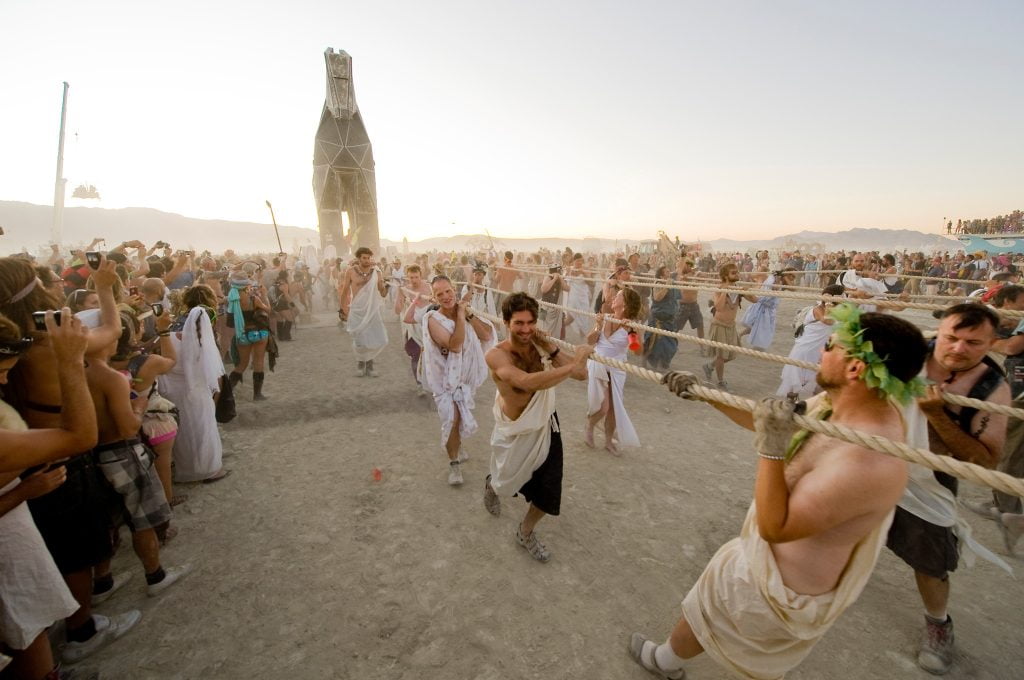Welcome to our exploration of the intriguing Festival of Dionysus, a celebration shrouded in mystique and ancient traditions. The Festival of Dionysus, held in honour of the Greek god of wine and fertility, is a cultural extravaganza that offers a glimpse into the rituals and festivities of the ancient world. But what exactly do they do in this enigmatic festival? From theatrical performances to processions, sacrifices, and ecstatic dancing, this festival was a spectacle that transcended ordinary boundaries. Join us as we delve into the captivating rituals and practices that defined the Festival of Dionysus, shedding light on its significance and its enduring legacy on modern cultural celebrations.
View this post on Instagram
Introduction: Exploring the Festival of Dionysus
The Festival of Dionysus, an ancient Greek festival dedicated to the god of wine, theatre, and ecstasy, continues to captivate audiences with its rich history and cultural significance. Celebrated in honour of Dionysus, the god of fertility and wine, this festival is a time of revelry and artistic expression that dates back to ancient times.
The Origins of the Festival
Originating in Athens in the 6th century BCE, the Festival of Dionysus was a prominent event in the city’s religious calendar. It featured dramatic performances, choral contests, and processions in honour of Dionysus, drawing participants and spectators from far and wide.
This cultural celebration showcased the finest playwrights of the time, such as Aeschylus, Sophocles, and Euripides, who presented their tragedies and comedies to the audience in the grand theatre of Dionysus.
The Rituals and Ceremonies
The festival included various rituals and ceremonies believed to invoke Dionysus’s presence and blessings. Participants engaged in processions, sacrifices, and adoration of the god through song, dance, and theatrical performances.
The festival of Dionysus celebrates art, culture, and spirituality, blending elements of theatre, music, and religious devotion in a vibrant and captivating spectacle.

History of the Festival: Origins and Evolution
The Festival of Dionysus, celebrated in ancient Greece, has a rich history dating back to the 6th century BCE. Dionysus, the Greek god of wine, fertility, and art, was honoured during the festival through theatrical performances, music, and revelry. Over time, this event evolved into a prominent cultural celebration.
Origins of the Festival
The festival originated in Athens as a tribute to Dionysus, believed to bring divine inspiration to artists and playwrights. It featured drama competitions, including the famous Dionysia, showcasing tragedies and satirical plays.
The festival’s revelries often involved processions, feasting, and masked performances, symbolizing mythological tales of the god.
Evolution of the Festival
As the festival grew in popularity, it expanded beyond Athens to various Greek city-states, becoming a symbol of unity and shared culture among the Greek people.
The Festival of Dionysus changed over the centuries, adapting to ancient Greece’s social and political dynamics while preserving its core celebration of art and creativity.
“>
Roles and Activities: Participants in the Celebration
During the Festival of Dionysus, participants perform various roles and activities to honour the god of wine and fertility. The festival typically involves actors, musicians, dancers, and audience members who play significant roles in the celebration.
Actors
Actors were the central figures in the Greek theatre performances during the Festival of Dionysus. They portrayed various characters and stories, often wearing masks to represent different personalities.
Musicians and Dancers
Musicians and dancers added a vibrant element to the festival, providing musical accompaniment and performances that enhanced the theatrical productions. Their rhythmic movements and melodies contributed to the overall festivities.
Rituals and Ceremonies: Traditions at the Festival
At the Festival of Dionysus, the ancient Greek god of wine and fertility, many rituals and ceremonies honour and celebrate this deity. These traditions, dating back to ancient times, are still observed with zeal and enthusiasm today.
Processions and Offerings
One of the central aspects of the festival is the grand processions through the streets, accompanied by music, dance, and revelry. Participants carry offerings of grapes and wine to symbolize the bountiful harvests and Dionysus’ connection to nature. The year 2021 will witness larger processions to mark the grandeur of the occasion.
Theatrical Performances
The Festival of Dionysus is renowned for its theatrical performances, especially tragic plays and comedies. These performances are a way to honour the gods and showcase artistic talents. The audience is immersed in the world of Greek mythology and drama, experiencing a range of emotions. The actors’ performances in 2021 are expected to be mesmerizing and captivating.
Significance and Symbolism: Understanding the Meaning
Delving into the festival of Dionysus unveils a rich tapestry of significance and symbolism that holds profound cultural and spiritual meanings. From its origins in ancient Greece to its modern-day celebrations, the festival is a tribute to Dionysus, the god of wine, fertility, and ecstasy. Through ritualistic performances, revelry, and theatrical displays, participants pay homage to Dionysus’s dual nature, embodying chaos and liberation.
Theatre and Tragedy
The festival of Dionysus is intricately linked to the birth of theatre and the genre of tragedy. Performances of tragic plays served as a form of catharsis, allowing audiences to experience intense emotions and purge their souls of pent-up feelings. The plays often explored themes of fate, hubris, and the human condition, reflecting the duality of Dionysus’s characteristics.
Rituals and Revelry
Central to the festival are the rituals of wine consumption and ecstatic revelry. Participants engage in processions, dances, and feasts, symbolizing the union between mortals and the divine. Through the consumption of wine, individuals seek to transcend their mundane existence and connect with the divine essence within themselves, embracing Dionysian ecstasy and freedom.

Impact of the Festival: Influence on Art and Culture
Participating in the Festival of Dionysus significantly impacts art and culture, shaping creative expression and societal norms. The festival, known for its celebration of wine, theatre, and revelry, profoundly influences various art forms and cultural practices.
Cultural Evolution through Theatrical Performances
Theatrical performances during the festival entertain the audience and serve as a platform for conveying moral lessons and reflecting on societal issues. These performances often challenge traditional beliefs and inspire new perspectives for dramatic narratives.
Artistic Expression in Dionysian Festivities
The festival’s artistic expression ranges from elaborate costumes to intricate masks that symbolize Dionysus’s transformational power. Participants engage in dance, music, and visual arts, infusing creativity with religious fervour and emotional depth.
- Visual Arts: Artists create vibrant paintings and sculptures that capture the essence of Dionysian rituals.
- Music and Dance: The festival’s music and dance performances showcase the fusion of traditional and contemporary styles, reflecting the dynamic nature of artistic evolution.
Frequently Asked Questions
- What is the Festival of Dionysus?
- The Festival of Dionysus was an ancient Greek festival honouring Dionysus, the god of wine, fertility, and theatre. It was one of the most important festivals in ancient Athens.
- When does the Festival of Dionysus take place?
- The Festival of Dionysus took place in late March or early April, coinciding with the spring season and the cultivation of vines.
- What activities were part of the Festival of Dionysus?
- The Festival of Dionysus included theatrical performances of tragic plays, comedic plays, satyr plays, religious rituals, processions, and feasting.
- Who participated in the Festival of Dionysus?
- The festival was attended by citizens of Athens, including men, women, and children. For the ancient Greeks, it was a time of celebration and religious reverence.
- What was the significance of the Festival of Dionysus?
- The festival was dedicated to Dionysus to honour and appease the god and promote cultural and artistic expression through theatre.
Unraveling the Mysteries: What Happens in the Festival of Dionysus
Exploring the Festival of Dionysus has been a fascinating journey into the world of ancient Greek culture and traditions. From theatrical performances to religious rites, this festival celebrated art, wine, and the spirit of Dionysus. The ceremonial aspects of the festival, like the dithyrambs and processions, served as a form of worship and entertainment, showcasing the deep reverence for the god of wine and fertility.
In summary, the Festival of Dionysus was a multifaceted event that blended religious devotion with artistic expression, creating a unique cultural experience that resonates even today. By delving into the customs and practices of this ancient celebration, we gain a deeper understanding of Dionysus’s significance and his enduring influence on Greek society.




